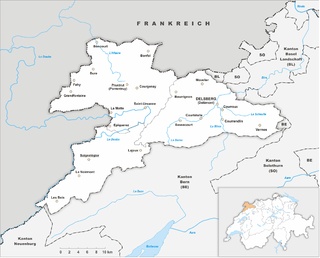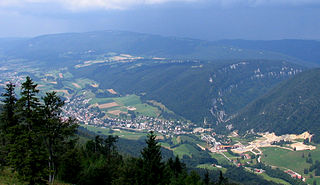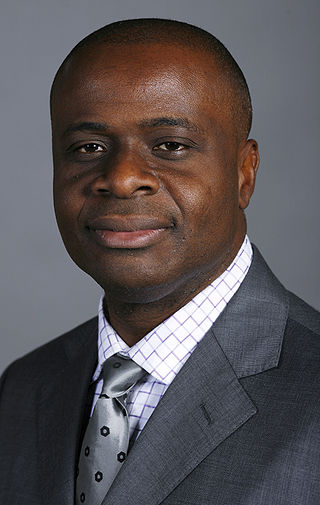
Switzerland, officially the Swiss Confederation, is a landlocked country located in west-central Europe. It is bordered by Italy to the south, France to the west, Germany to the north, and Austria and Liechtenstein to the east. Switzerland is geographically divided among the Swiss Plateau, the Alps and the Jura; the Alps occupy the greater part of the territory, whereas most of the country's population of 9 million are concentrated on the plateau, which hosts its largest cities and economic centres, including Zurich, Geneva, and Basel.

Bern, or Berne, is the de facto capital of Switzerland, referred to as the "federal city". With a population of about 133,000, Bern is the fifth-most populous city in Switzerland, behind Zürich, Geneva, Basel and Lausanne. The Bern agglomeration, which includes 36 municipalities, had a population of 406,900 in 2014. The metropolitan area had a population of 660,000 in 2000.

The 26 cantons of Switzerland are the member states of the Swiss Confederation. The nucleus of the Swiss Confederacy in the form of the first three confederate allies used to be referred to as the Waldstätte. Two important periods in the development of the Old Swiss Confederacy are summarized by the terms Acht Orte and Dreizehn Orte.

The Federal Council is the federal cabinet of the Swiss Confederation. Its seven members also serve as the collective head of state and government of Switzerland. Since after World War II, the Federal Council is by convention a permanent grand coalition government composed of representatives of the country's major parties and language regions.

The Social Democratic Party of Switzerland, also called the Swiss Socialist Party, is a political party in Switzerland. The SP has had two representatives on the Federal Council since 1960 and received the second-highest number of votes in the 2023 Swiss federal election.

The Republic and Canton of Jura, less formally the Canton of Jura or Canton Jura, is the newest of the 26 Swiss cantons, located in the northwestern part of Switzerland. The capital is Delémont. It shares borders with the canton of Basel-Landschaft, the canton of Bern, the canton of Neuchatel, the canton of Solothurn, and the French régions of Bourgogne-Franche-Comté and Grand Est.

The National Council is the lower house of the Federal Assembly, with the upper house being the Council of States. Containing 200 seats, the National Council is the larger of the two houses.

The Swiss People's Party, also known as the Democratic Union of the Centre, is a national conservative and right-wing populist political party in Switzerland. Chaired by Marcel Dettling, it is the largest party in the Federal Assembly, with 62 members of the National Council and 6 of the Council of States.

The Christian Democratic People's Party of Switzerland, also called the Christian Democratic Party, Democratic People's Party and Swiss Christian Democratic Party, was a Christian democratic political party in Switzerland. On 1 January 2021, it merged with the Conservative Democratic Party of Switzerland (BDP/PBD) to form The Centre, which now operates at the federal level. The Christian Democratic People's Party will continue to exist at the cantonal level as individual local and regional parties determine their status. Its 28 seats in the National Council and 13 seats in the Council of States were transferred to the new party, as was its sole seat on the Federal Council, held by Viola Amherd.
Switzerland elects on national level a collective head of state, the Federal Council, and a legislature, the Federal Assembly.

Bernese Jura is the name for the French-speaking area of the Swiss canton of Bern, and from 2010 one of ten administrative divisions of the canton.
The Swiss Confederation comprises the 26 cantons of Switzerland.
Voting in Switzerland is the process by which Swiss citizens make decisions about governance and elect officials. The history of voting rights in Switzerland mirrors the complexity of the nation itself. The polling stations are opened on Saturdays and Sunday mornings but most people vote by post in advance. At noon on Sunday, voting ends and the results are usually known during the afternoon.
The Green Liberal Party of Switzerland, abbreviated to GLP, is a centrist green-liberal political party in Switzerland. Founded in 2007, the party holds eleven seats in the Federal Assembly as of the October 2023 election.

Ricardo Lumengo is a Swiss attorney and politician. He previously served as a member of the National Council (Switzerland) for the Social Democratic Party. Lumengo previously served on the Grand Council of Bern between 2006 and 2007. He was the first ever of black ethnicity to serve in the Federal Assembly.
The far right in Switzerland was established in the course of the rise of fascism in Europe in the interwar period. It was a mostly marginal phenomenon in the Cold War period, excepting a surge of radical right-wing populism during the early 1970s, and it has again experienced growth alongside the right-wing Swiss People's Party since the 1990s.

Federal elections were held in Switzerland on 18 October 2015 for the National Council and the first round of elections to the Council of States, with runoff elections to the Council of States being held in various cantons until 22 November.

Eva Andrea Allemann abbreviated as Evi Allemann is a Swiss politician who currently serves as member of the Executive Council of Bern for the Social Democratic Party since 2018. She previously served on the National Council (Switzerland) between 2003 and 2018.

By-elections to the Swiss Federal Council were held on 7 December 2022, after federal councillors Ueli Maurer (SVP-ZH) and Simonetta Sommaruga (SP-BE) announced they would leave the Council effective 31 December of the same year. The parliament elected Albert Rösti and Élisabeth Baume-Schneider respectively to replace them.














